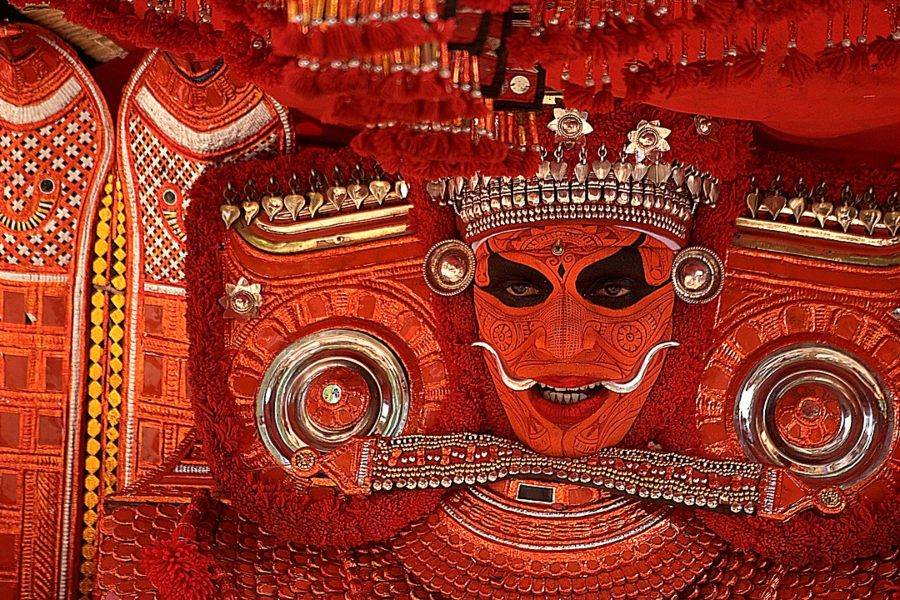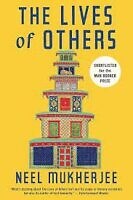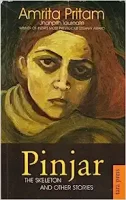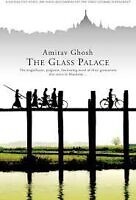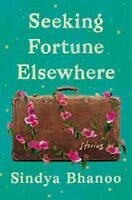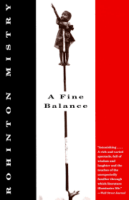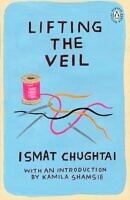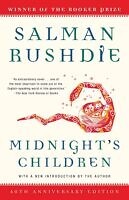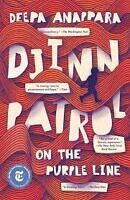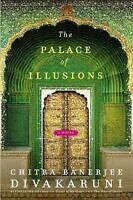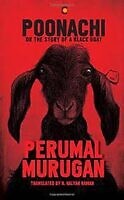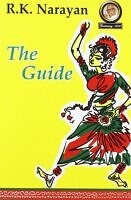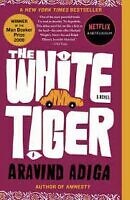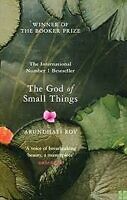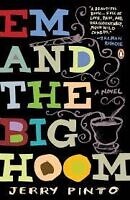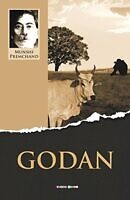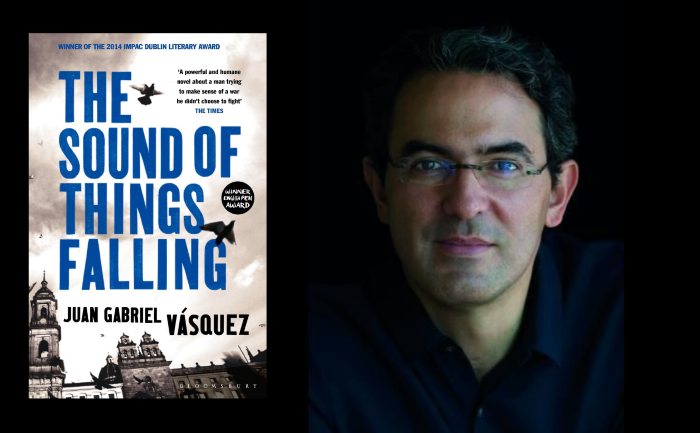Indian literature is arguably one of the oldest and richest literature in the world. Enjoy our selections of the Best Indian Books to Read.
The Lives of Others by Neel Mukherjee
Unnoticed by his family, Supratik has become dangerously involved in extremist political activism. Compelled by an idealistic desire to change his life and the world around him, all he leaves behind before disappearing is this note…
The ageing patriarch and matriarch of his family, the Ghoshes, preside over their large household, unaware that beneath the barely ruffled surface of their lives the sands are shifting. More than poisonous rivalries among sisters-in-law, destructive secrets, and the implosion of the family business, this is a family unravelling as the society around it fractures. For this is a moment of turbulence, of inevitable and unstoppable change: the chasm between the generations, and between those who have and those who have not, has never been wider.
Pinjar by Amrita Pritam
Pinjar tells the story of Puro, a young woman of Hindu background, finding herself living a lovely life – in a period circling the time of the Partition of 1947 – with her family. All is well for Puro, who finds herself betrothed to a wealthy, sweet young man, Ramchand, from a promising family akin to her own background.
Although her life seems to be well-charted, Puro’s bliss is shattered one day as a leisurely trip in the fields beyond her home with Rajjo turns traumatic as she is kidnapped by a mysterious man, who turns out to be Rashid, a man of Muslim descent. Rashid’s family was once scorned by Puro’s when in a few generations before theirs’, a Great-some-Uncle of Puro’s kidnapped a Great-some-Aunt of Rashid’s. Now, vengeance has been proclaimed by Rashid’s Uncles, and have finally triumphed by successfully capturing Puro.
The Glass Palace by Amitav Ghosh
Unable to forget the girl he befriended during the British invasion of 1885 when soldiers forced the royal family of Burma into exile, Rajkumar is lifted on the tides of political and social chaos to create an empire in the Burmese teak forests.
Inspired by stories passed down in the author’s family, stretches from the British invasion of Burma, in 1885, through the country’s independence, to the uneasy military rule of the present day. The novel is presided over by the Indian-born Rajkumar, a poor orphan, who falls for Dolly, a servant of the exiled queen.
Ghosh renders the polite imprisonment of the Burmese royal family in India and the lush, dangerous atmosphere of teak camps in the Burmese forest with fine detail–– a perfect balance for the broad strokes of romance and serendipity that drive the story forward. The book’s memorial power is so strong that, near the end, when Rajkumar, an old man, reflects, “Ah, Burma––now Burma was a golden land,” the reader catches himself nodding in recognition of what was lost.
Seeking Fortune Elsewhere by Sindya Bhanoo
The eight stories in Seeking Fortune Elsewhere, Sindya Bhanoo’s exquisite debut story collection, paint a portrait of characters struggling to make sense of the lives they have been given and trying to figure out what, exactly, lies within their control.
The stories take place in India and in the United States, in the late 20th century and in the contemporary moment, and Bhanoo uses both the first person and the third person point-of-view to come close to her characters’ hearts and minds. The point-of-view characters range from old to young, female to male, Indian to American.
Each of the stories creates a new world for us to inhabit—a few stories are tangentially linked—and the cumulative effect is rich and layered, an intimate look into these characters’ lives. It is rare for all the stories in a collection to feel equally realized, but this collection manages to do just that.
A Fine Balance by Rohinton Mistry
A Fine Balance, Rohinton Mistry’s stunning internationally acclaimed bestseller, is set in mid-1970s India. It tells the story of four unlikely people whose lives come together during a time of political turmoil soon after the government declares a “State of Internal Emergency.”
Through days of bleakness and hope, their circumstances – and their fates – become inextricably linked in ways no one could have foreseen. Mistry’s prose is alive with enduring images and a cast of unforgettable characters. Written with compassion, humour, and insight, A Fine Balance is a vivid, richly textured, and powerful novel written by one of the most gifted writers of our time.
Lifting The Veil by Ismat Chughtai
At a time when writing by and about women was rare and tentative, Chughtai explored female sexuality with unparalleled frankness and examined the political and social mores of her time. She wrote about the world that she knew, bringing the idiom of the middle class to Urdu prose, and totally transformed the complexion of Urdu fiction.
Lifting the Veil brings together Ismat Chughtai’s fiction and non-fiction writing the twenty-one pieces in this selection are Chughtai at her best, marked by her brilliant turn of phrase, scintillating dialogue and wry humor, her characteristic irreverence, wit and eye for detail
Midnight’s Children by Salman Rushdie
Born at the stroke of midnight at the exact moment of India’s independence, Saleem Sinai is a special child. However, this coincidence of birth has consequences he is not prepared for: telepathic powers connect him with 1,000 other ‘midnight’s children’ all of whom are endowed with unusual gifts.
Inextricably linked to his nation, Saleem’s story is a whirlwind of disasters and triumphs that mirrors the course of modern India at its most impossible and glorious. This was the novel that launched Salman Rushdie’s long and successful career.
Djinn Patrol on the Purple Line by Deepa Anappara
In a sprawling Indian city, a boy ventures into its most dangerous corners to find his missing classmate. . .
Through market lanes crammed with too many people, dogs, and rickshaws, past stalls that smell of cardamom and sizzling oil, below a smoggy sky that doesn’t let through a single blade of sunlight, and all the way at the end of the Purple metro line lies a jumble of tin-roofed homes where nine-year-old Jai lives with his family. From his doorway, he can spot the glittering lights of the city’s fancy high-rises, and though his mother works as a maid in one, to him they seem a thousand miles away.
Djinn Patrol on the Purple Line plunges readers deep into this neighborhood to trace the unfolding of a tragedy through the eyes of a child as he has his first perilous collisions with an unjust and complicated wider world.
The Palace of Illusions by Chitra Banerjee Divakaruni
The Palace of Illusions, takes us back to the time of the Indian epic The Mahabharat—a time that is half-history, half-myth, and wholly magical. Through her narrator Panchaali, the wife of the legendary five Pandavas brothers, Divakaruni gives us a rare feminist interpretation of an epic story.
The novel traces Panchaali’s life, beginning with her magical birth in fire as the daughter of a king before following her spirited balancing act as a woman with five husbands who have been cheated out of their father’s kingdom. Panchaali is swept into their quest to reclaim their birthright, remaining at the brothers’ sides through years of exile and a terrible civil war.
Meanwhile, we never lose sight of her stratagems to take over control of her household from her mother-in-law, her complicated friendship with the enigmatic Krishna, or her secret attraction to the mysterious man who is her husband’s most dangerous enemy. Panchaali is a fiery female voice in a world of warriors, gods, and the ever-manipulating hands of fate.
Poonachi: Or The Story Of A Black Goat by Perumal Murugan
Through a seeming act of providence, an old couple receives a day-old female goat kid as a gift from the cosmos. Thus begins the story of Poonachi, the little orphan goat.
As you follow her story from forest to habitation, independence to motherhood, you recognise in its significant moments the depth and magnitude of your own fears and longings, fuelled by the instinct for survival that animates all life. Masterly and nuanced, Perumal Murugan’s tale forces us reflect on our own responses to hierarchy and ownership, selflessness and appetite, love and desire, living and dying.
Poonachi is the story of a goat who carries the burden of being different all her life, of a she-goat who survives against the odds. It is equally an expression of solidarity with the animal world and the female condition. The tale is also a commentary on our times, on the choices we make as a society and a nation, and the increasing vulnerability of individuals, particularly writers and artists, who resist when they are pressed to submit.
The Guide by R.K Narayan
Formerly India’s most corrupt tourist guide, Raju, just released from prison, seeks refuge in an abandoned temple. Mistaken for a holy man, he plays the part and succeeds so well that God himself intervenes to put Raju’s newfound sanctity to the test. Narayan’s most celebrated novel, The Guide won him the National Prize of the Indian Literary Academy, his country’s highest literary honor.
Like most of his works the novel is based on Malgudi, the fictional town in South India. This is ultimately a tale of redemption. One of the popular fable types in India is that of the reformed rogue, who having led a life of dissolution, suddenly comes into contact with the Godhead and is redeemed. This is Narayan’s take on the same – however, he being who he is, his tongue is in his cheek.
White Tiger by Aravind Adiga
The white tiger of this novel is Balram Halwai, a poor Indian villager whose great ambition leads him to the zenith of Indian business culture, the world of the Bangalore entrepreneur. On the occasion of the president of China’s impending trip to Bangalore, Balram writes a letter to him describing his transformation and his experience as driver and servant to a wealthy Indian family, which he thinks exemplifies the contradictions and complications of Indian society.
The White Tiger is narrative genius with a mischief and personality all its own. Amoral, irreverent, deeply endearing, and utterly contemporary, this novel is an international publishing sensation—and a startling, provocative debut.
The God of Small Things by Arundhati Roy
Arundhati Roy has written an astonishingly rich, fertile novel, teeming with life, colour, heart-stopping language, wry comedy and a hint of magical realism.
Set against a background of political turbulence in Kerala, Southern India, The God of Small Things tells the story of twins Esthappen and Rahel. Amongst the vats of banana jam and heaps of peppercorns in their grandmother’s factory, they try to craft a childhood for themselves amidst what constitutes their family – their lonely, lovely mother, their beloved Uncle Chacko (pickle baron, radical Marxist and bottom-pincher) and their avowed enemy Baby Kochamma (ex-nun and incumbent grand-aunt).
Em and The Big Hoom by Jerry Pinto
First published by a small press in India, Jerry Pinto’s debut novel took taken the literary world by storm. Suffused with compassion, humor, and hard-won wisdom, Em and the Big Hoom is a modern masterpiece.
Meet Imelda and Augustine, or, as our young narrator calls his unusual parents, Em and the Big Hoom. Most of the time, Em smokes endless beedis and sings her way through life. She is the sun around which everyone else orbits. But as enchanting and high-spirited as she can be, when Em’s bipolar disorder seizes her she becomes monstrous, sometimes with calamitous consequences for herself and others. This accomplished debut is graceful and urgent, with a one-of-a-kind voice that will stay with readers long after the last page.
Godan by Munshi Premchand
Hori had a great desire to have a milched cow tied to her tether in order to bring up her and wash all his worldly sins. By the grace of God he found one but due to the jealousy of his younger brother he was deprived of the cow later on.
How much Hori sacrificed for the sake of the cow? Who remained not to be his lender? Who left around not to be a person to avail of Hori’s unpaid labour? Despite all these sacrifices, if he could gift a cow?
Dubbed to be ‘The great epic of life of a peasant’, Godan is a novel replete with the artistic presentation of the seasoned writer in Munshi Premchand and his down-to-earth experiences of life. The novel has depicted vividly the escapades of feudal lords, traders and the so-called high priests of religion.
If you enjoyed our reading list for the Best Indian Books, check out our South East Asia Book Recommendations.


